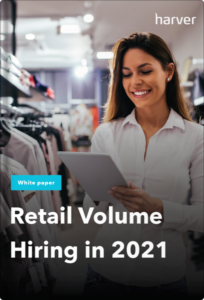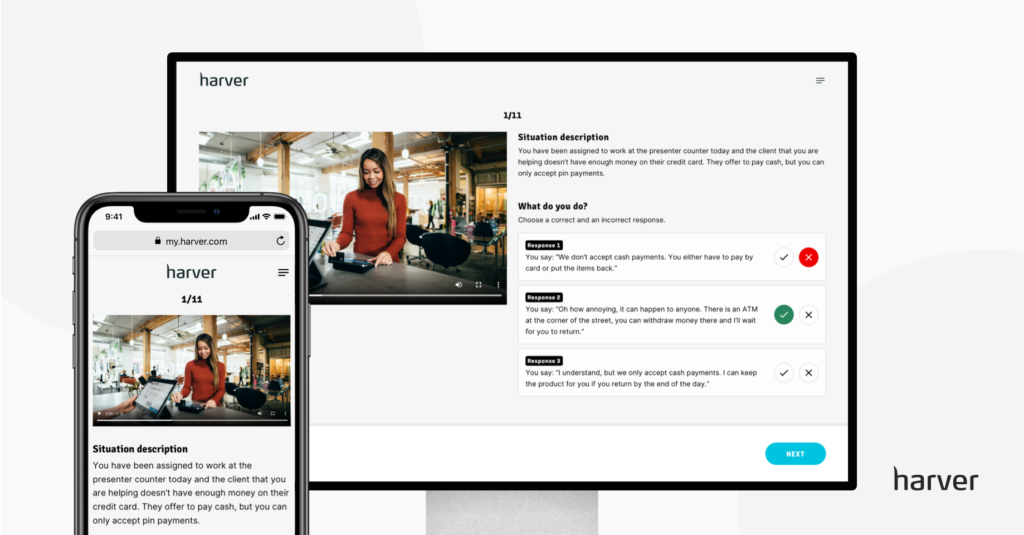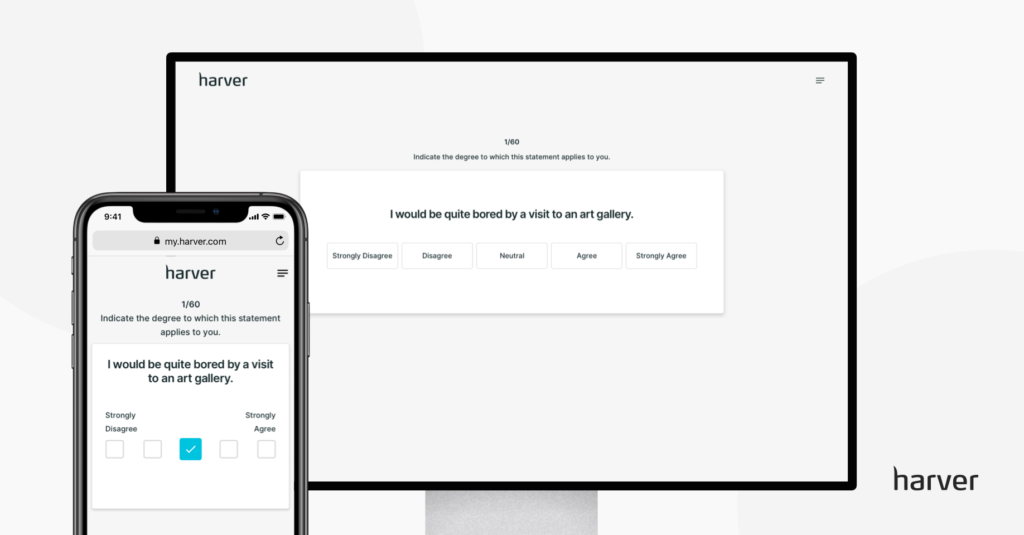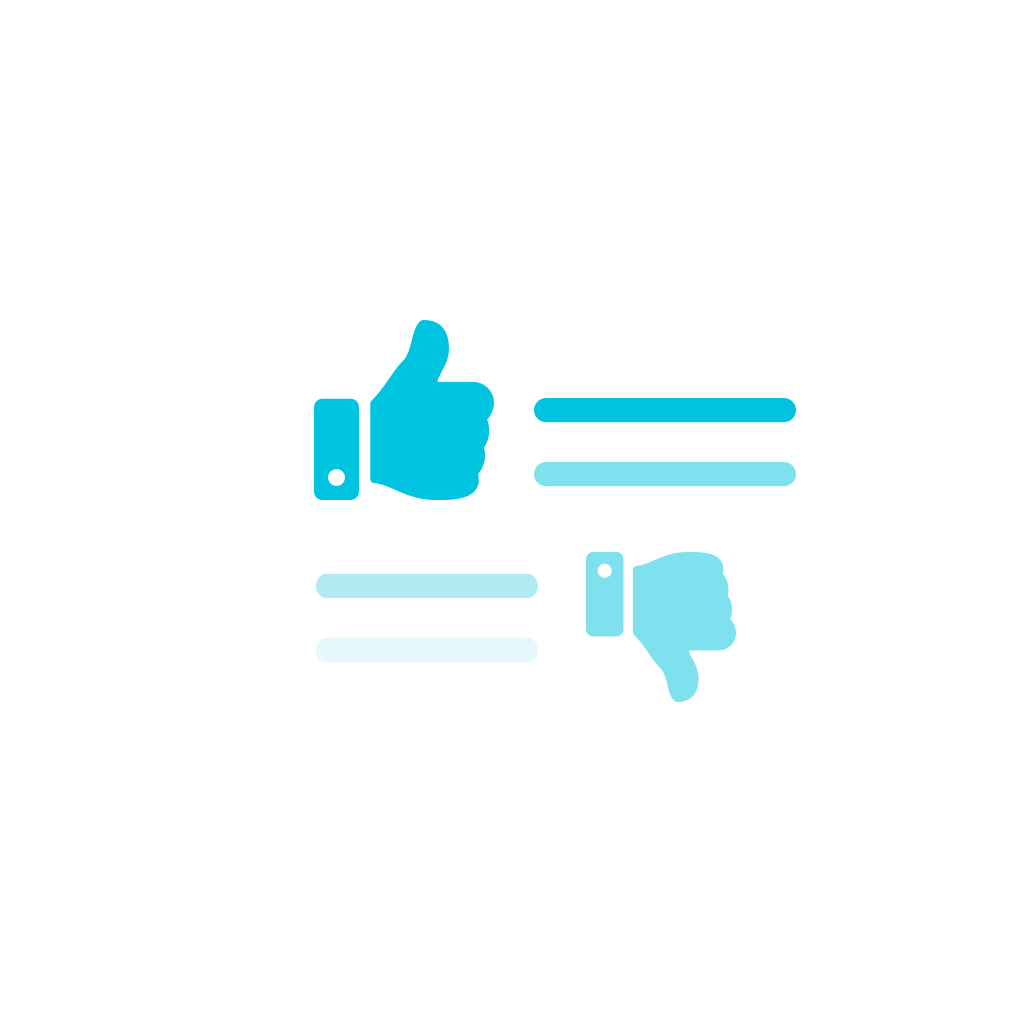History has shown that the retail labor market ebbs and flows. However, at the time of writing, it’s facing a series of challenges impacting employees, recruiters, and businesses alike.
The sector is currently experiencing a post-Covid labor shortage. According to the Department of Labor, there are an estimated 965,000 open jobs in the retail industry.
Unfortunately, feelings of dissatisfaction, betrayal, and outrage have caused many workers to turn their backs on the industry. Now, fewer workers than ever before are willing to set foot in a retail store.
So what can retailers do to attract and hire top performers? One solution is to adjust their selection criteria and hire for skills and attitude, as opposed to industry experience.
Let’s see what this means in practice!
What’s in?
Like what you see?
Don’t miss out. Subscribe to our quarterly digest to get the latest TA and TM resources delivered right to your inbox.
Why retailers should hire for skills, not experience
Even before the pandemic became part of our everyday vocabulary, retail workers hung by a thread. Thousands claimed they were underpaid, had few benefits to incentivize them, and many even faced abuse from their own employers. As Covid began to sweep the nation, these disparities were exacerbated further.
According to research from the American credit rating agency Fitch Ratings, the slump may persist well into late 2022, meaning employers and recruiters need to bring a new mentality to the recruitment process to stand any chance of plugging the workforce gaps.
Most retail jobs are considered entry-level roles. For these positions, skill and ability matter far more than experience. The practical parts of the role can be picked up quickly by suitable candidates with little training and no prior experience.
So, if you’re only considering previous retail workers, think again. Your candidate’s resume and experience shouldn’t be their only selling point. Actually, transferable skills are where the real value lies. Yes, retail roles are customer-facing, but that doesn’t mean candidates need retail experience to demonstrate decent customer service skills.
For example, those who have worked in the hospitality sector or a call center will have developed a range of customer service, listening, and communication skills. All of which are invaluable skills for thriving in retail. Even younger workers without ‘traditional’ work experience may have developed these skills through voluntary work, work experience, participation in drama clubs, or other extra-curricular activities.
At Harver, we’ve seen this time and again with our retail clients: candidates who share certain skills and characteristics tend to stay longer and perform better. So let’s dive into the soft skills that retail employees should possess.
- White paper
Before you continue!
Don’t forget to grab your free copy of our new white paper on the digital transformation of retail volume hiring. Learn about:
- The challenges currently shaping the retail volume hiring space
- How to align your recruitment strategy with today’s reality by adopting technology
- The four building blocks of a fully digital recruitment process

Soft skills to look for in retail employees
The necessary skills for working in retail are extensive, and they’ll often differ depending on the sort of retailer you are. For example, if you’re a luxury brand, you’re not just looking for excellent communication and teamwork skills. You’ll also need a candidate proficient in sales who can upsell and cross-sell various products to customers.
Of course, these skills will also differ if you’re working in a grocer’s compared to a clothing store. Grocery workers tend to do more heavy lifting, have good communication skills, be self-starters, and are dependable – especially if they’re working unsociable hours. Whereas retail workers in clothes stores may be more focused on attention to detail, creativity, or organization.
As you can see, retail clerk skills are varied, and retail itself includes many different roles. This is why assessing a variety of soft skills for retail, like those listed below, should be at the top of your list when considering new candidates.
1. Communication skills
Prioritize candidates with strong communication skills. This includes spoken, written, typed, and even body language. Retail employees are the company’s image. They’ll regularly have to deal with customer complaints and queries, communicate with buyers from other stores, greet customers, communicate effectively with their team, and more.
Even if a candidate has previously worked in retail and can’t demonstrate effective communication skills, they’re unlikely to be as strong an applicant as other candidates.
2. Teamwork skills
A positive customer experience begins with solid teamwork. Retail workers need to perform various tasks (many of which are time-sensitive). These are often completed most efficiently when colleagues successfully work together.
Each person needs to be committed to a shared goal, and candidates don’t need prior retail experience to get in on this. Teamwork skills are fostered in many workplaces, including hospitality, construction, arts and culture, marketing, and more.
The bottom line: Working effectively with others is an easily transferrable skill that candidates with experience in different industries can bring to the table.
3. Resistance to stress and conflict
Retail jobs are notoriously stressful. Unfortunately, conflict is common on the job, too. Employees often deal with challenging customers, and like in any other workplace, conflict within teams can also arise.
So, when you’re considering which skills prospective retail associated need, rank emotional resilience highly. People build resilience in numerous ways, whether through personal and economic challenges or experience in emotionally challenging roles. This could be working as a carer, working with children or adolescents, hospitality roles, call center positions – to name a few.
Aside from experience, what’s most important is that your candidates have the strength and confidence to face challenging situations head-on, manage them effectively, and look after themselves in the process. This skill comes naturally to some, and it’s not always something previous experience can guarantee. As such, it’s imperative you assess applicants for such a skill.
The state of retail recruitment
It is becoming increasingly difficult to hire – let alone retain – retail workers. Technological advancements have created an opportunity to overcome the biggest challenges in retail recruitment.
4. How sociable the candidate is
To deal with people day in, day out, you need to be sociable. If your social battery hits zero after a few hours of interaction, retail is probably not the job for you. Retail work is definitely not suitable for introverted personality types, as much of the job is spent talking to and interacting with other customers and colleagues.
In retail, the customer experience is greatly improved when employees can demonstrate a genuine desire to interact with them and make their experience positive. So when you’re scouring the candidate pool, keep an eye out for those that are keen to socialize, not just in their previous roles but in their free time, too.
Some of the most friendly people tend to have a broad range of hobbies, interests, and busy personal schedules. Asking the right questions in the hiring process and beyond can help you better picture their personality type and social preferences.
5. The candidate’s aptitude for customer-facing roles
Sometimes, our greatest skills and talents come naturally. For example, having an innate aptitude for customer-facing roles. These positions require several different skills, including empathy, adaptability, communication, patience, self-control, and more. These skills can certainly be developed, but some of the best retailers have a natural gift for these sorts of positions.
Fortunately, you can set pre-employment assessments to test aptitude. If they score highly, you’ll get a definitive indication of the candidate’s suitability for the role – regardless of their background.
6. How candidates perform under pressure
How well do your candidates perform under pressure? It’s one of those buzz phrases that pop up frequently in resumes and job postings, but it really is an essential skill.
Candidates who perform well under pressure may have experience in other high-pressure jobs. They may have developed this skill in an academic setting by meeting strict deadlines and managing stressful workloads.
Performing under pressure isn’t learned strictly from previous employment; it can be picked up in various other settings, too. For example, candidates who have been members of sports teams or drama classes who perform frequently may also have this skill.
Retail workers deal with pressure every day, from demanding workloads and staff shortages to time-sensitive tasks and having to answer multiple queries in quick succession. Therefore, having a candidate who knows how to prioritize their duties and their time appropriately to thrive in pressurized environments is a must.
7. How easily candidates get bored or lose motivation
Bored employees have little motivation to complete their work. Usually, workplace boredom isn’t a direct expression of disrespect to your company; instead, it’s an expression of frustration at having to do the same menial tasks repetitively.
According to a survey by Korn Ferry, boredom is a big reason why many workers quit their jobs. Also, around 24% of the workers surveyed said they left their role because it didn’t align with their values.
We’re all human, and when employees have the occasional burst of tiredness and boredom, it’s understandable. However, employees who display this attitude persistently just aren’t a good fit for the job. Ideally, candidates should also demonstrate an ability to be proactive, think on their feet, and keep themselves occupied.
That’s why it’s essential workers understand the nature of the job, the tasks they’ll be performing, and your company culture from the get-go. That way, you and your recruits will be on the same page from day one, which goes a long way to reducing employee turnover.
8. How candidates respond to leadership
High-quality candidates will respond well to leadership. Proper management is integral for ensuring the workplace runs efficiently, store maintenance, and customer satisfaction.
That’s why your ideal candidates will understand that a workplace hierarchy exists for these purposes. They should also acknowledge that by performing the roles expected of them, they’re contributing to an effective, happy, and successful workforce.
Employees shouldn’t just have respect for their management teams; they should also have the initiative to approach them with any queries or concerns. They should also display some of the same essential leadership qualities within themselves so that they’re equipped to manage difficult situations independently if required.
How to assess these soft skills
We usually advise our retail clients to use a limited number of pre-employment assessments and to keep the selection process short, straightforward, and engaging.
Although the exact sequence of assessments might vary depending on the state of the labor market, the open roles, and demand on the client’s side, we usually recommend the three types of assessments below.
Situational judgement tests (SJTs)
Situational judgment tests are typically used in high-volume retail hiring and are great predictors of a candidate’s on-the-job performance. They usually last between 8-12 minutes and include situational questions relevant to the role.
For example, a candidate for a grocery store role may be shown a video asking what they should do if a customer asks for help while they’re in the middle of restocking. They’ll then pick an answer from a list of possible outcomes to give you a feel for how they would handle these kinds of real-life scenarios.

Harver clients can choose from a library of out-of-the-box SJTs, or can opt for custom situational judgment tests, which are created by our team of I/O psychologists based on the specifics of the role and the company culture.
Below you can learn more about how the Harver SJTs work.
Personality tests
Personality tests help ensure a candidate is a good fit with your company’s culture and values. They’re designed to reveal the applicant’s dominant personality traits.
Once you’ve determined their most desirable characteristics and qualities, you can put together a series of questions to assess their answers. For example, you could ask, “do you enjoy working with others?” to determine how social they are and how strong their teamwork skills are.

Personality questionnaires can take much longer, as they ask about the candidate’s preferences at length. Adding these to your pre-employment screening process can be valuable when the labor market is good, but if the market is tight, you might want to decrease friction by choosing fewer assessments for your selection flow.
To learn more about the Harver personality questionnaire, you can check the page below.
Cultural fit assessments
When an employee’s personal and professional values and beliefs align with and complement those of the company they work for, we speak of organizational – or culture – fit. As such, it’s important to establish what exactly defines a fit. And that starts with determining the organization’s values, norms, and vision.
Assessing organizational fit is not an exact science and might be subjective, which can result in a biased hiring process. That’s why it is a good idea to use a standardized assessment, developed by I/O psychologists, as one of the ways to measure culture fit.
Next steps
As you can see, when you’re hiring new candidates within the retail sector, it shouldn’t all come down to their resumes and previous experience.
Often, the most desirable qualities and skillsets come naturally or can be learned and developed in other positions non-related to retail. Likewise, the practical aspects of the work can be learned on the job, assuming the candidate is a good fit with the company’s culture.
That’s why it’s imperative you incorporate situational judgment tests and personality tests into your recruitment process so that you can get an empirical idea of who your top retail candidates are.
- White paper
Before you continue!
Don’t forget to grab your free copy of our new white paper on the digital transformation of retail volume hiring. Learn about:
- The challenges currently shaping the retail volume hiring space
- How to align your recruitment strategy with today’s reality by adopting technology
- The four building blocks of a fully digital recruitment process







